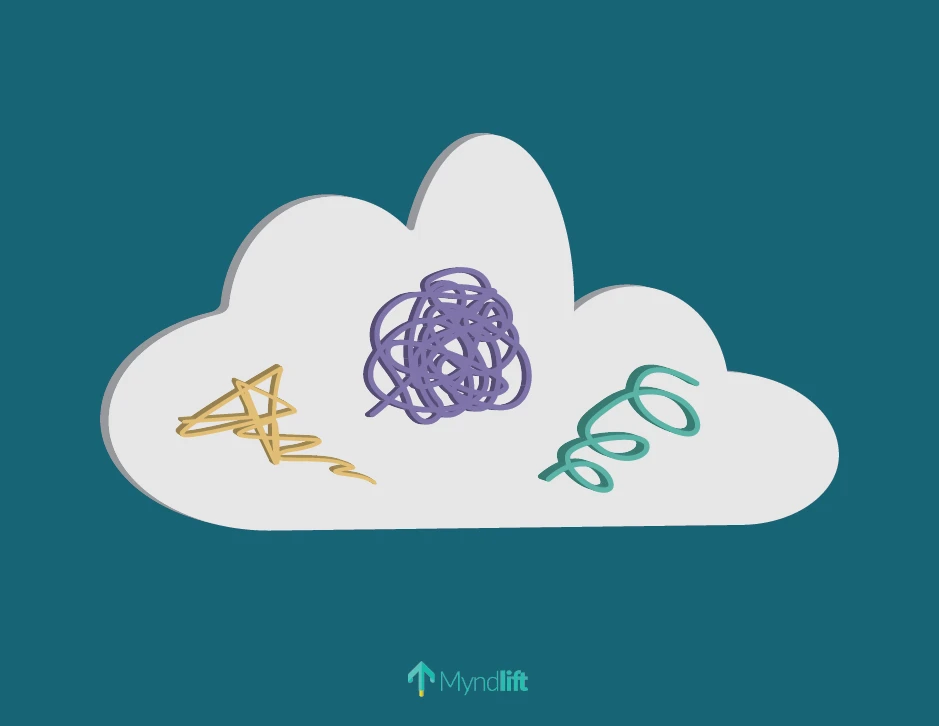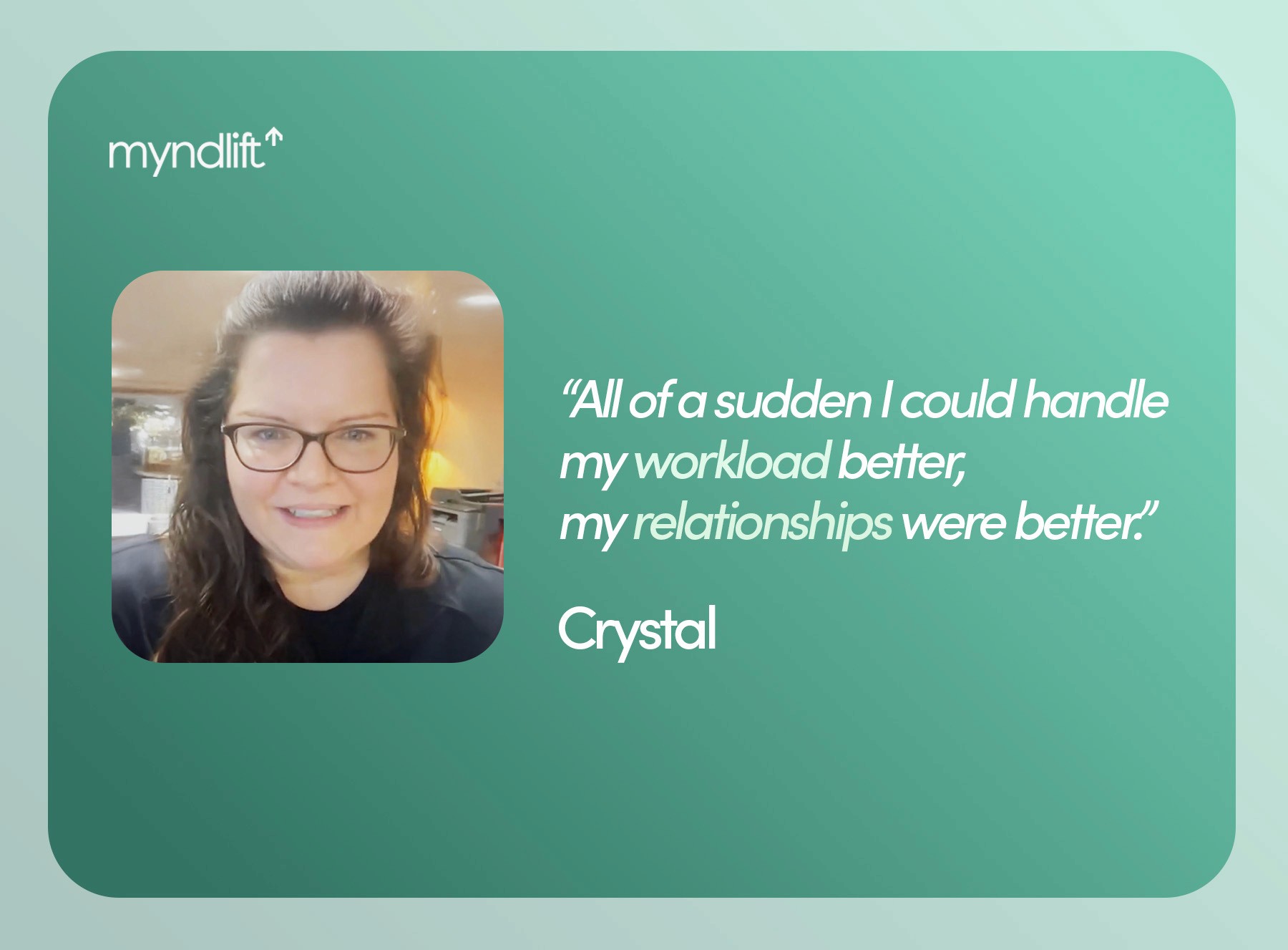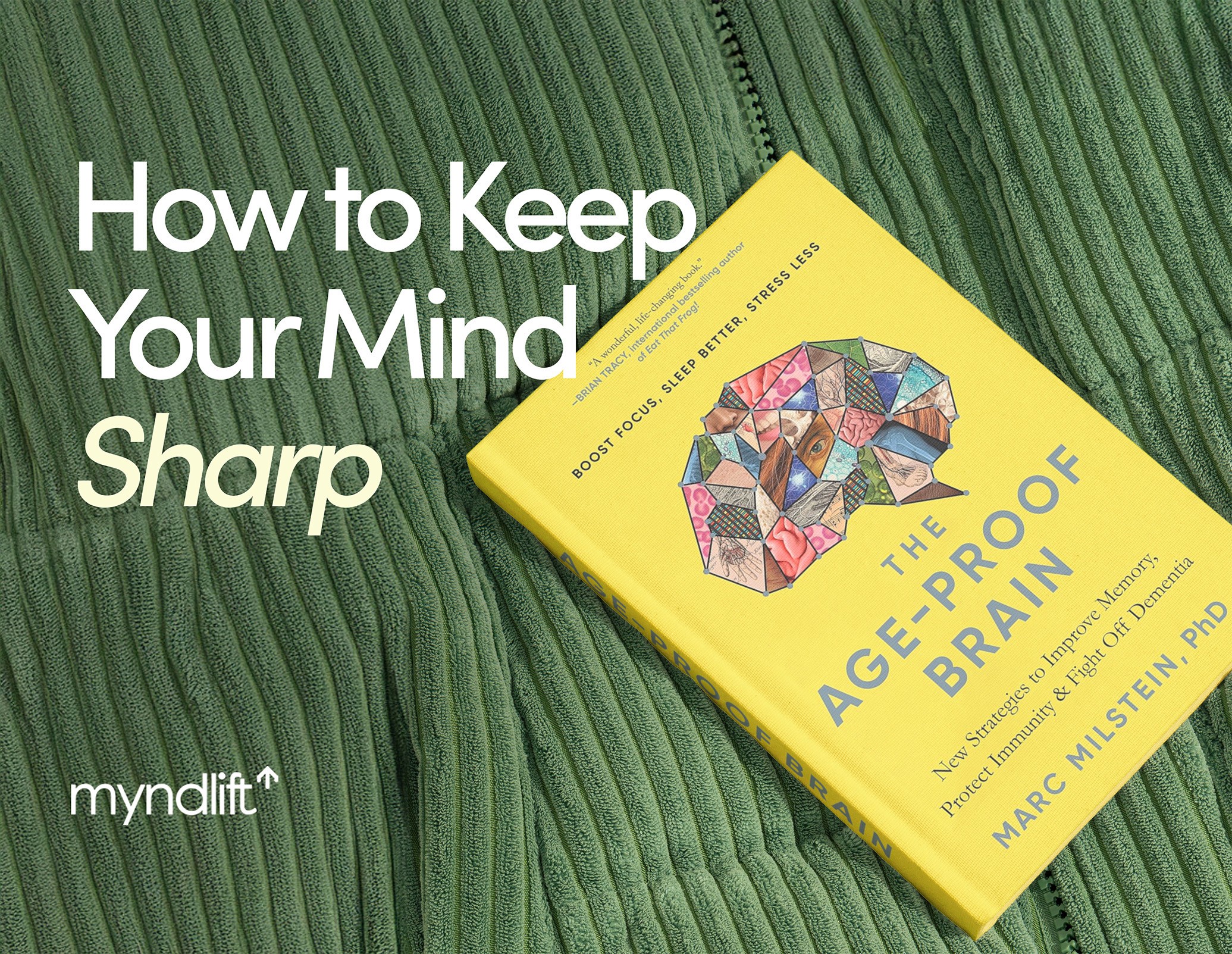Many people wonder if the symptoms they experience stem from anxiety or ADHD. In fact, according to a recent study, one in four adults with ADHD is diagnosed with a generalized anxiety disorder as well.
The reasons why ADHD and anxiety coexist are genetics along with the fact that having ADHD can make daily life stressful, and stress is a common trigger for anxiety.
It's important to consult your therapist first to recognize whether you have anxiety or ADHD, or both, and then treat each disorder with the right type of support.
In order to gain more clarity on whether you have ADHD or anxiety, ask yourself if physiological symptoms follow your restlessness, if difficulty focusing is linked to stress, and if it's challenging to follow social cues.
If you've ever asked yourself, “Do I have anxiety or ADHD?” you're not alone. Even though anxiety and ADHD (attention deficit hyperactivity disorder) are different conditions, many people experience overlapping symptoms between the two disorders. In fact, a recent study found that one in four adults with ADHD had a generalized anxiety disorder as well.
Anxiety and ADHD: What’s the Link?
One of the reasons why these disorders coexist is genetics. For example, if a few of your family members are diagnosed with ADHD, anxiety, or both, you may also be more likely to develop comorbidity.
However, the most frequent reason for comorbidity is the fact that having ADHD can make daily life stressful, and stress is a common trigger for anxiety.
For instance, if you have ADHD, you probably experience chronic forgetfulness and organization issues. As a result, you might miss an important work deadline or forget to study for an exam and become stressed as a result. Even the fear of potentially forgetting to do such important tasks can cause you extensive worry. From this worry, pressure can mount, and anxiety can develop, which can make ADHD symptoms more severe.
But this cycle of symptom exacerbation is not unstoppable! In order to alleviate both ADHD and anxiety symptoms, it's important that you and your therapist first recognize whether you have anxiety, ADHD, or both, and then treat each disorder with the right type of support.
In this article, we'll break down how anxiety and ADHD overlap and explain how mutual symptoms manifest differently for each condition.
1. Is Your Restlessness Followed by Physiological Symptoms?
Restlessness is one of the common symptoms of hyperactive/impulsive type ADHD. People with this type of ADHD feel the need for constant movement and often fidget, squirm, and struggle to stay seated.
And even though these symptoms usually show in childhood and decline by adolescence, what's usually left in adulthood is the feeling of restlessness and the need to keep busy. These are behaviors that can easily be confused with experiencing anxiety symptoms.
The difference is that restlessness in ADHD is correlated with the brain not sending signals that help you slow down, while anxiety is a direct result of the brain's fight-or-flight response being activated when it encounters what it perceives as danger. The perception of a threat triggers a cascade of physiological changes, and the brain sets off an alarm throughout the central nervous system. As a result, the adrenal glands start pumping out hormones such as adrenaline and noradrenaline, which place the body on high alert to either confront the threat ("fight") or leave as quickly as possible ("flight").
If you have anxiety, you may have an overactive fight-or-flight response that can be triggered frequently, even when there's no real threat. This can cause you to feel restless and even contribute to physiological symptoms such as a pounding heart or sweaty hands.
It’s these physiological symptoms that are prevalent in anxiety and not ADHD-related restlessness.
2. Is Difficulty Focusing Linked to Stress?
If you have anxiety, your mind is likely preoccupied with worries and fears, which can make it difficult for you to maintain focus and sustain attention. If you have ADHD, you may experience trouble ignoring external stimuli, such as lights or noises, thereby feeling distracted and also struggling to sustain your attention. In both cases, you might have trouble paying attention, planning, organizing, and following through on tasks as a result.
However, in many cases, difficulty focusing followed by symptoms of anxiety usually intensifies in situations that you might find stressful. For example, instead of thinking that you'll just run to the store to get some groceries, you would contemplate what you need, what stores are open, and worry about how fast you can drive there. This severe amount of stress that derives from taking all these factors into consideration can cause you to miss or forget something important – like your wallet.
On the other hand, if you have ADHD, you probably find it challenging to concentrate most of the time regardless of whether or not the situation is considered stressful or demanding. In this case, you would start making a shopping list but get distracted by a pile of unfolded laundry. Next thing you know, the laundry is folded, but the store is now closed, and your fridge is still empty because you failed to complete the task that you initially set out to do.
3. Is It Challenging to Follow Social Cues?
Both anxiety and ADHD can negatively impact your social skills. If you have ADHD, you might feel intimidated by rapid verbal interplay while talking to a group of friends. You might miss the point of the conversation, frequently interrupt others, misread social cues, or misinterpret someone’s body language.
The reason this happens is due to an executive functioning impairment (skills pertaining to self-regulation, planning, and focus). The brain’s executive control manages your ability to wait your turn to speak, avoid getting distracted, direct your actions, control your emotions, and it also helps you to recognize non-verbal social cues, such as body postures or facial expressions.
In contrast, if you have anxiety, you're typically aware of social situations and able to read social cues, but you may find managing anxious emotions challenging. This can make you fearful of engaging in conversations, and that extensive fear can give off the impression that you don't want to interact socially. Furthermore, you might experience difficulty following conversations because your mind is consumed by worrying thoughts.
For people with both ADHD and anxiety, difficulty reading social cues and understanding body language usually leads to experiencing anxiety symptoms in social situations.
The Importance of Accurate Diagnosis for Anxiety and ADHD
While some symptoms of anxiety and ADHD can look similar, the causes are very different. In order to determine what is causing the symptoms, you should consult a mental health
professional who will evaluate the state of your underlying cognitive and neurological processes.
This information is essential because it determines how you proceed with any method of treatment or therapy, whether that be CBT, neurofeedback therapy, medication, or a combination of methods.
An EEG assessment could be done to get more insights into your brain and determine whether neurofeedback training for anxiety is the suitable way to go in order to reduce symptoms.
With proper care and the correct approach, you won't wonder, "Do I have anxiety or ADHD" anymore; instead, you'll be able to alleviate your symptoms and set yourself on the path to a healthier life. And the sooner you start therapy, the better. There's never a wrong time to seek help and learn coping skills that can improve your wellbeing!
Myndlift provides a personalized expert-guided brain training program that can help you achieve your goals towards reaching improved focus and calm. Check if you’re eligible to kick start your journey with us for better brain health from here.
About the author:
Dubravka Rebic
Dubravka Rebic puts a lot of time and energy into researching and writing in order to help create awareness and positive change in the mental health space. From poring over scientific studies to reading entire books in order to write a single content piece, she puts in the hard work to ensure her content is of the highest quality and provides maximum value.
References
Whitehead JC, Neeman R, Doniger GM, Preliminary Real-World Evidence Supporting the Efficacy of a Remote Neurofeedback System in Improving Mental Health: Retrospective Single-Group Pretest-Posttest Study JMIR Form Res 2022;6(7):e35636, doi: 10.2196/35636 PMID: 35802411
Fuller-Thomson E, Carrique L, MacNeil A. Generalized anxiety disorder among adults with attention deficit hyperactivity disorder. J Affect Disord. 2022 Feb 15;299:707-714. doi: 10.1016/j.jad.2021.10.020. Epub 2021 Nov 16. PMID: 34799150.
Faraone SV, Larsson H. Genetics of attention deficit hyperactivity disorder. Mol Psychiatry. 2019 Apr;24(4):562-575. doi: 10.1038/s41380-018-0070-0. Epub 2018 Jun 11. PMID: 29892054; PMCID: PMC6477889.




